دنیا بازیچه یهود
نویسنده:
سیدمحمد حسینی شیرازی
مترجم:
سید هادی مدرسی
امتیاز دهید
قوم یهود به بنیاسرائیل نیز معروف هستند یعنی فرزندان اسرائیل.
اسرائیل کیست؟
اسرائیل لقب حضرت یعقوب فرزند اسحاق است.
حضرت یعقوب دارای دوارده فرزند بود که یهود از نام چهارمین فرزند ایشان یعنی یهوذا گرفته شده است.
یهوذا و برادرانش به اتفاق پدرشان یعقوب در کنعان زندگی میکردند، البته پس از توطئه به قتل رساندن حضرت یوسف که یهوذا نیز در آن دست داشت، برادران یوسف فلسطین را به قصد مصر ترک کردند.
این مهاجرت زمانی صورت گرفت که مصر مملکتی پرجمعیت و با ثروت بهشمار میرفت به همین دلیل است که: حاکم چنین مملکتی گوئی بر کل جهان حکومت میکند... .
اسرائیل کیست؟
اسرائیل لقب حضرت یعقوب فرزند اسحاق است.
حضرت یعقوب دارای دوارده فرزند بود که یهود از نام چهارمین فرزند ایشان یعنی یهوذا گرفته شده است.
یهوذا و برادرانش به اتفاق پدرشان یعقوب در کنعان زندگی میکردند، البته پس از توطئه به قتل رساندن حضرت یوسف که یهوذا نیز در آن دست داشت، برادران یوسف فلسطین را به قصد مصر ترک کردند.
این مهاجرت زمانی صورت گرفت که مصر مملکتی پرجمعیت و با ثروت بهشمار میرفت به همین دلیل است که: حاکم چنین مملکتی گوئی بر کل جهان حکومت میکند... .
آپلود شده توسط:
shytin_cupid
1389/04/30
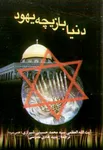
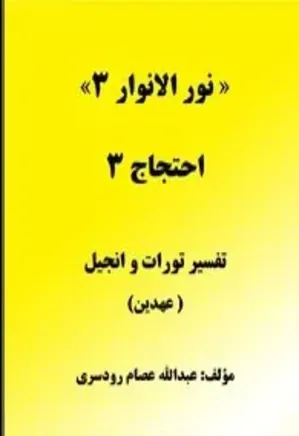
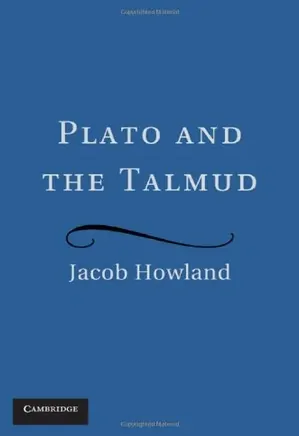
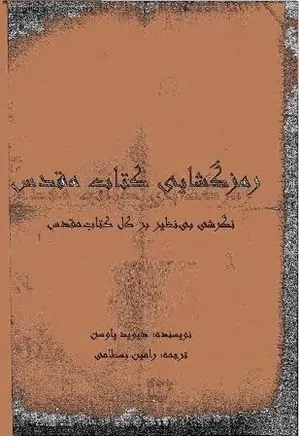
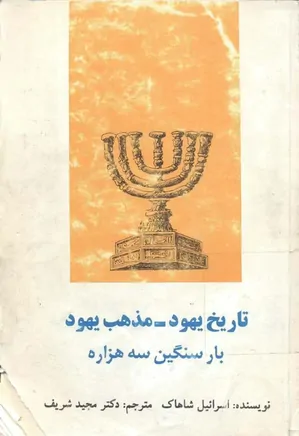
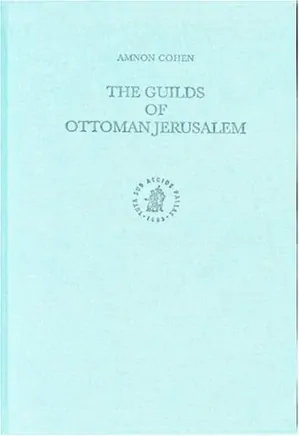
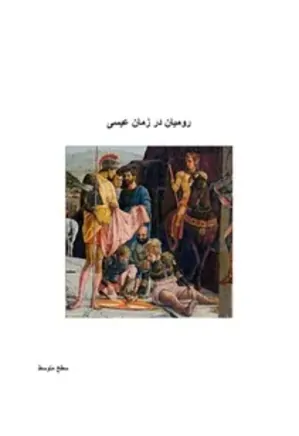
دیدگاههای کتاب الکترونیکی دنیا بازیچه یهود
۶- به انگاره ی اینکه این داستان بی پایه را پذیرفته باشیم، پادشاه ایران (سررشته دار ایران) به یهودیان پروانه داده که "برای پَدافند از جان خود" پایداری کنند و کسانی را که " آهنگ آسیب زدن " به آنها را داشتند، از بیخ از میان ببرند! بنگرید
In them the king granted the Jews who were in each and every city the right to assemble and to defend their lives, to destroy, to kill and to annihilate the entire army of any people or province which might attack them, including children and women, and to plunder their spoil
---
13
A copy of the edict to be issued as law in each and every province was published to all the peoples, so that the Jews would be ready for this day to avenge themselves on their enemies
تلافی
9.10
But the Jews did not seize any of their possessions
و با اینکه پروا داشتند، ولی دارایی های دشمنان خود را چپاول نکردند!
۷- کسانی چون ناصر پورپیرار کوشیده اند که جشن سیزده بدر ایرانی را به گونه ای با پوریم پیوند دهند، و آن را نشانه ای از این کُشتار پنداری بازشناسند! در حالی که:
This was done on the thirteenth day of the month Adar
and on the fourteenth day of that month they rested and made it a day of feasting and gladness
ماه آدار = نزدیک اسفند ماه و ماه نیسان = نزدیک فروردین ماه است. پس این روز به سیزده بدر(13 فروردین) پیوندی ندارد. همچنین در زمان گذشته، در پایان ماه اسفند ایرانی، پنج روز (پنجه ی گمشده) را می افزودند، چون هر ماه 30 روز داشت... و یهودیان هم جشن پوریم را بیشتر در اسفند برگزار می کنند.
Purim will occur on the following days of the Gregorian calendar:
• Jewish Year 5766 : sunset March 13, 2006 - nightfall March 14, 2006
• Jewish Year 5767 : sunset March 3, 2007 - nightfall March 4, 2007
• Jewish Year 5768 : sunset March 20, 2008 - nightfall March 21, 2008
• Jewish Year 5769 : sunset March 9, 2009 - nightfall March 10, 2009
• Jewish Year 5770 : sunset February 27, 2010 - nightfall February 28, 2010
«یهودیان در همه ی استانهای اَخشورش پادشاه(خشایارشا) گِردآمده تا بر کسانی که آهنگ آزار آنان را داشتند چیره گردند... و همه ی سرپرستان ِ استان ها و بزرگان و کارتاران ِ پادشاه، یهودیان را یاری رساندند... پس یهودیان، سراسر دشمنان خود را به دم شمشیر زده و کشتند و با آنان هرچه خواستند انجام دادند... همگی یهودیانی که در استانهای پادشاه بودند، گِردآمده و برای جان های خود پایداری نمودند و چون هفتاد و هفت هزار تن از دشمنان خویش را کشته بودند، از آنان آرامی یافتند ولی دست خود را به تاراج نگشودند». (عهد عتیق، استر، ۹)
چند نکته در پیرامون این داستان/افسانه گفتنیست:
۱- تنها بن مایه ی این داستان، کتاب استر/کتاب عهد عتیق(Old Testament) است ودر هیچ جای دیگر این داستان تأیید نشده است.
(جالب است که همین دروغ پردازان مدعی اند نام کوروش بزرگ تنها در تورات و نوشته های هردوت آمده و به همین دلیل شخصیتی به نام کوروش جعلی و ساخته و پرداخته یهودیان است و اساسا در تاریخ وجود خارجی نداشته!!! اما خود با استناد به یک افسانه که تنها در کتاب عهد عتیق آمده و در هیچ منبع تاریخی دیگری به آن اشاره نشده اینچنین هذیان گویی می کنند و قصه می بافند! البته درباره کوروش بزرگ نیز احتمالا چشمان نابینایشان صدها کتاب و سند تاریخی و سنگ نوشته های باستانی و کتب مورخانی چون کتزیاس، گزنفون، پوليانوس،... را ندیده است که تنها از کتاب تورات و نوشته های هردوت نام می برند!!!)
۲- چنین ماجرای گسترده و بزرگ و برجسته ای، در هیچ کدام از بن مایه های تاریخی کهن و کلاسیک یونانی و غیر یونانی نیامده است!
۳- چنین کشتار و درگیری بزرگی، بی گفتگوست که باید از خود یادگاری برجا گذاشته باشد و امروزه باستان شناسان یک نشانه از این کشتار بزرگ را به دست آورده باشند، ولی چنین نشانه ای تا کنون یافت نشده است!
۴- کسانی چون پورپیرار که این داستان بی پایه را دستاویزی کرده اند برای ایران ستیزی و خوارداشت فرمانروایی پرشکوه و درخشان ایرانی/هخامنشی، خود پیش از این، تورات را تحریف شده و یهودیان را سراسر دروغ پرداز شناسانده اند! و نغز است که هم اکنون برای ایران ستیزی به همان بن مایه های تحریف شده اتکا می کنند!
بیاد داشته باشیم که در همین کتاب تورات داوی(ادعا) کُشتی گرفتن خدا با انسان شده است! یا در جای دیگری به خدا، اَنگ ِ رشک ورزیدن به انسان زده می شوند! چرا که انسان همچون خدا خوب و بد را از یکدیگر بازمیشناسد!(پیدایش/سقوط انسان/ آیه 22) یا در جای دیگری به پیامبر خدا، اَنگ ِ همبستری با دختران خود را می زند!(پیدایش/لوط و دخترانش/ آیه 31 تا 33)
بازگویی های تورات و نَسَک هایی همچون آن، که با استوره و افسانه درآمیخته اند، زمانی ارزش و اَرجی دارند که در بُن مایه های دیگر نیز یادی از آن رویدادها شده باشد! تا پس از آن بتوان اینها را با یکدیگر سَنجید و به هوده ای درست و آمیغ(حقیقت)ها برسیم.
۵- یاد کردن از شماره هایی ورجاوندی چون ۷۷ یا ۳ یا ۷ در این بازگویی، خود نشان از جایگاه افسانه/استوره گونه ی داستان دارد و نشان می دهد که به تنهایی ارزش دانِشیک ندارد.
داستان از اینجا آغاز می شود که، وزیر بلندپایه ای به نام «هامان» در دربار هخامنشی، رفتار یکی از درباریان یهودی به نام مردخای(Mordchaj) را برنمی تابد و کینه ی او را به دل گرفته و از خشایارشا دستور کشتار یهودیان در سرتاسر فرمانروایی پارس را می گیرد. ولی با تیزهوشی یهودیان، به رهبری مردخای و استر،(Esther) –همسر یهودی خشایارشا- ایشان برای پَدافند از خود، به گونه ای، رای خشایارشا(اخشفوَرَشباز!) را به سود خود بازگردانده و به جای اینکه در روز 13 و 14 ماه عبری «ادار» یهودیان کشتار شوند, هفتاد و هفت هزار تن -که قرار بود یهودیان را کشتار گروهی کنند- با پروای پادشاه، به دست خود یهودیان کشته می شوند.
برپایه ی تورات خشایارشا، امپراتور پارس، در سومین سال پادشاهی خویش، جشنی با شکوه برپانمود که یکسد و هشتاد روز به درازا کشید و سران و بزرگان سرتاسر امپراتوری پهناور هخامنشی در آن همبازی(شرکت) داشتند. با پایان یافتن این جشن، خشایارشا جشنی هفت روزه نیز برای باشندگان پایتخت هخامنشی برگزار نمود.
همزمان با وی، «وَشتی» - شَهبانوی زیباروی هخامنشی- نیز جشنی برای زنان پایتخت برپا کرد. در واپسین روز این جشن هفت روزه، خشایارشا که از باده نوشی و میگُساری بسیار مست گٌشته بود، فرمان به رونَمایی شهبانو وَشتی به میهمانان خود داد، ولی شهبانو گردن ننهاد و به دست خشایارشا از جایگاه خود برکنار گردید. پس از آن زنی یهودی به نام هَداسا(Hadasa) که نزد پسرعموی خویش مردخای در پارس به سر می برد به شهبانویی ایرانزمین برگزیده شد. این زن، یهودی بودن خود را پنهان داشته و به همین انگیزه نام پارسی استر(ستاره) را برای خود برگزیده بود. تا اینکه هامان به شُوند کینه ای که از مردخای به دل داشت، نیرنگی کرده و آهنگ کشتار همگانی یهودیان را در سرتاسر امپراتوری پارس می کند. هامان پس از آنکه پور(به چَم قرعه) سیزدهمین روز از ماه عبری «آدار» را نشان داد، به دیدار خشایارشا شتافت تا پروای کشتار همکٌانی یهودیان را از وی دریافت دارد.
«پس هامان به اَخشورش پادشاه کٌفت: تیره ای هستند که در میان تیره ها در سراسر فرمانروایی کشور تو پراکنده می باشند و شرایع ایشان پاد(ضد) همه ی تیره ها است و شرایع پادشاه را به جا نمی آورند. لیکن ایشان را چنین واکٌذاشتن برای پادشاه سودمند نیست، اکٌر پادشاه را پسند آید فرمانی نوشته شود که ایشان را کشتار کنند و من ده هزار وزنه سیم(نقره) به دست کارتاران(عاملان) خواهم داد تا آن را به گنجینه ی پادشاه بیاورند.» (کتاب استر، باب سوم، آیات هشتم و نهم)
و پادشاه نیز می پذیرد:
«آنگاه پادشاه انکٌشتر خود را از دست بیرون آورده، آن را به هامان پور همداتای اَجاجی -که دشمن یهود بود- داد و پادشاه به هامان کٌفت: هم سیم و هم تیره را به تو دادم تا هرچه در دیدت پسند آید بر ایشان انجام دهی.» (همانجا، باب سوم، آیات دهم و یازدهم)
و قرار بر این شد که، در سیزدهمین روز از ماه عبری «آدار» یهودیان کشتار گردندند. در اینجاست که راز پنج ساله ی یهودی بودن «استر» فاش می گردد! به دستور مردخای, استر راز خود را با خشایارشا در میان می گذارد و خاستار جلوگیری از این کشتار و مجازات هامان و دیگر دست اندرکاران این ماجرا شد:
«و در آنها پادشاه به یهودیانی که در همه شهرها بودند پروا داد که گِرد آمده، برای جانهای خود پَدافند نمایند و همگی قفوّت تیره ها و استان ها را که آهنگ آزار ایشان می داشتند، با کودکان و زنان ایشان را کشتار کنند و دارایی ایشان را تاراج کنند.» (همانجا، باب هشتم، آیه یازدهم)
دلارای عزیز
سلام
نکاتی که در نوشتارتان در باره ی موضوع قتل عام ایرانیان توسط قوم بنی اسرائیل (یعنی همان یهودیانی که روزگاری زیر یوغ بخت النصر بودند و بعدها توسط کوروش رهایی یافتند) و عید پوریم یا فوریم یا همان جشن ایرانی کشی فراموش فرمودید و در نوشتار دوم تان اساساً آنها را انکار فرمودید- موارد ذیل الذکر است:
(مواردذ عیناً از کتاب مقدس یهودیان و مسیحیان یعنی تورات تقدیم شده است. ترجمه ی ارائه شده توسط یکی از روحانیون یهودی انجام یافته است)
1- Esther did not reveal her race or nationality, because Mordechai had ordered her not to.(Chapter 2-10)
2- And Esther still did not reveal her nationality or race, as Mordechai had ordered her. Esther obeyed the words of Mordechai just as she did when he was raising her. .(Chapter 2-20)
3- At the banquet, over drinks, the king asked Esther, "Whatever your request, you will receive it. Whatever you desire, up until half the empire, it shall be done!" (Chapter 5-6)
4- On the second day, the king said again to Esther, over the wine, "Whatever your desire, Queen Esther, you shall have. And whatever you request, up until half the empire, will be done." (Chapter 7-2)
5- The decree stated that the king permits the Jews of each city to gather and defend themselves, to destroy, kill, and eradicate all the armies menacing them, children and women, and to pillage their property, for one day, throughout all the provinces of King Achashvairosh, on the thirteenth day of the twelfth month, Adar. (Chapter 8-11,12)
6- The Jews struck at all their opponents with the sword, killing and destroying them, and they defeated all their enemies. In Shushan Capital the Jews killed and destroyed five hundred men.They also killed Parshandasa, Dalfon, Aspasa, Porasa, Adalya, Aridasa, Parmashta, Arisei, Aridei, and Vayizoso, the ten sons of Haman, the son of Hamdoso, persecutor of the Jews. But they did not pillage their property. (Chapter 9-5,10)
7- Esther replied, "If it pleases the king, may the Jews of Shushan have tomorrow also, with the same rules as today? And also, could the ten sons of Haman be hanged on the gallows?" (Chapter 9-13)
8- The king ordered these things to be done. The decree was announced in Shushan, and also the ten sons of Haman were hanged on the gallows.
9- So the Jews of Shushan gathered again on the fourteenth day of Adar, and they killed another three hundred men in Shushan, but they did not pillage their property.
10- The Jews in the rest of the empire also gathered to defend themselves and get peace from their enemies, and they killed a total of seventy-five thousand, but they did not pillage their property. (Chapter 9-14,15,16)
11- That's why these days are called Purim, because of the pur. (Chapter 9-26)
12- The Holiday of Purim will never be abolished among the Jews.
موفق باشید.
سلام
نکاتی که در نوشتارتان فراموش فرمودید و در نوشتار دوم تان اساساً آنها را انکار فرمودید- موارد ذیل الذکر است:
1- Esther did not reveal her race or nationality, because Mordechai had ordered her not to.(Chapter 2-10)
2- And Esther still did not reveal her nationality or race, as Mordechai had ordered her. Esther obeyed the words of Mordechai just as she did when he was raising her. .(Chapter 2-20)
3- At the banquet, over drinks, the king asked Esther, "Whatever your request, you will receive it. Whatever you desire, up until half the empire, it shall be done!" (Chapter 5-6)
4- On the second day, the king said again to Esther, over the wine, "Whatever your desire, Queen Esther, you shall have. And whatever you request, up until half the empire, will be done." (Chapter 7-2)
5- The decree stated that the king permits the Jews of each city to gather and defend themselves, to destroy, kill, and eradicate all the armies menacing them, children and women, and to pillage their property, for one day, throughout all the provinces of King Achashvairosh, on the thirteenth day of the twelfth month, Adar. (Chapter 8-11,12)
6- The Jews struck at all their opponents with the sword, killing and destroying them, and they defeated all their enemies. In Shushan Capital the Jews killed and destroyed five hundred men.They also killed Parshandasa, Dalfon, Aspasa, Porasa, Adalya, Aridasa, Parmashta, Arisei, Aridei, and Vayizoso, the ten sons of Haman, the son of Hamdoso, persecutor of the Jews. But they did not pillage their property. (Chapter 9-5,10)
7- Esther replied, "If it pleases the king, may the Jews of Shushan have tomorrow also, with the same rules as today? And also, could the ten sons of Haman be hanged on the gallows?" (Chapter 9-13)
8- The king ordered these things to be done. The decree was announced in Shushan, and also the ten sons of Haman were hanged on the gallows.
9- So the Jews of Shushan gathered again on the fourteenth day of Adar, and they killed another three hundred men in Shushan, but they did not pillage their property.
10- The Jews in the rest of the empire also gathered to defend themselves and get peace from their enemies, and they killed a total of seventy-five thousand, but they did not pillage their property. (Chapter 9-14,15,16)
11- That's why these days are called Purim, because of the pur. (Chapter 9-26)
12- The Holiday of Purim will never be abolished among the Jews.
موفق باشید.
28 These days must be remembered and observed for every generation, every family, in every part of the world, in every city. The Holiday of Purim will never be abolished among the Jews, and their descendants will never cease to observe them.
Purim is Ratified
29 The next year, Queen Esther, the daughter of Avichayil, and Mordechai the Jew, used their authority to write a command that the Jews should obey this second Purim letter.
30 They sent copies of the letter to all the Jews throughout the one hundred twenty-seven provinces of Achashvairosh's empire, and the letter offered words of peace and truth.
31 The purpose of the second letter was to ensure that the days of Purim be kept at their proper times, as established by Mordechai the Jew and Queen Esther, and as accepted by all Jews on themselves and their descendants, the fasts and the prayers as well.
32 Esther's statements confirmed the Holiday of Purim, and this Book was also included in the Tanach.
Chapter 10
Epilogue
1 King Achashvairosh imposed a tax on the land and on the islands.
2 The details of Mordechai's might, power and how the king appointed him to an influential position, are all written in the book of chronicles of the Kings of Media and Persia.
3 Mordechai the Jew was viceroy to King Achashvairosh, great among Jews, and popular among many of his brothers; he worked constantly to better his people's circumstances, and was concerned for the welfare of future generations.
پایان کتاب مقدس استر که در آن صراحتاً آمده است که افراد قوم بنی اسرائیل یعنی یهودیان رها شده از بند نبوکد نصر(بخت النصر) به قتل عام بیش از 70000 (هفتاد هزار) ایرانی مبادرت کردند و در نهایت این قتل عام به پاس شکرگزاری به درگاه یهوه (خدای یهود) عید پوریم بنیان نهاده شد.:O
دلارای عزیز موفق باشید.
11 They notified the king of the death toll in Shushan Capital the same day it occurred.
12 The king said to Queen Esther, "In Shushan Capital the Jews killed and destroyed five hundred men, as well as the ten sons of Haman. Who knows what they did in the more distant provinces of the empire? Whatever you want, you will be given; whatever your request, it will be done."
13 Esther replied, "If it pleases the king, may the Jews of Shushan have tomorrow also, with the same rules as today? And also, could the ten sons of Haman be hanged on the gallows?"
14 The king ordered these things to be done. The decree was announced in Shushan, and also the ten sons of Haman were hanged on the gallows.
15 So the Jews of Shushan gathered again on the fourteenth day of Adar, and they killed another three hundred men in Shushan, but they did not pillage their property.
16 The Jews in the rest of the empire also gathered to defend themselves and get peace from their enemies, and they killed a total of seventy-five thousand, but they did not pillage their property.
17 They fought their battle on the thirteenth day of the month of Adar, and they rested on the fourteenth. So they made the fourteenth day of Adar a day of feasting and celebration.
18 But the Jews of Shushan gathered together on the thirteenth and the fourteenth days of Adar, and rested on the fifteenth day, so they made the fifteenth day of Adar a day of feasting and celebration.
19 That's why the Jews who live in villages and cities without walls around them observe the fourteenth day of Adar as the celebration, feasting, and a holy day, sending portions of food to each other.
20 Mordechai wrote down the details of all these events, and sent copies to all the Jews in all the provinces of King Achashvairosh's empire, whether nearby or distant.
21 Telling them to observe the fourteenth and fifteenth days of Adar, each and every year,
22 as the days that the Jews rested from their opponents, and the month that was reversed from sorrow to joy, and from mourning to holy celebration. These days should be observed as days of feasting and rejoicing, the sending of portions of food to a friend, and gifts to poor people.
23 The Jews all agreed to continue observing what they had already begun to observe, and everything that Mordechai had written to them.
24 For Haman the son of Hamodoso, the Agagite, persecutor of the Jews, had planned to destroy the Jews. He drew a pur, a lottery, to terrify and destroy them.
25 But when Esther came to the king, the king ordered decrees that the evil plans he had plotted against the Jews be visited upon him instead, and he and his sons were hanged on the gallows.
26 That's why these days are called Purim, because of the pur. Now, because of everything told in this letter, and because of everyone's personal experiences in these events, and because they finally understood the reason for everything that had taken place,
27 the Jews established and firmly accepted on themselves and on their descendants, and on anyone who might convert to Judaism, to faithfully observe these two days, as written, and at the right times, each and every year.
Purim is Ratified
ادامه دارد.
The Triumphal Celebration
15 Mordechai left the king's presence wearing royal clothing of blue and white, with a large golden crown, and a robe of fine, purple linen; then the city of Shushan was lighthearted and joyful.
16 The Jews were now able to enjoy the light of Torah, the delight of the Jewish Holidays, the joy of performing the Commandment of Circumcision, and the precious honor of the Commandment of tefillin.
17 Similarly, in every province and city to which the king's decree and authority reached there was joy and gladness for the Jews, as well as feasting and holiday. Many of the non-Jews claimed to be Jewish, because they had become afraid of the Jews.
Chapter 9
The Day of the Battle
1 On the thirteenth day of the twelfth month, which is the month of Adar, the king's decree was supposed to be executed. The enemies of the Jews had hoped to overpower the Jews that day, but the plot was overturned, and the Jews overpowered their enemies.
2 Throughout King Achashvairosh's provinces the Jews gathered in their cities to defend themselves against those who tried to hurt them. No one could withstand them, because everyone was afraid of them.
3 Even the provincial ministers, the satraps, the governors, and the king's pages, supported the Jews, because they were afraid of Mordechai.
4 You see, Mordechai had become very influential in the king's household, and his reputation was known throughout the empire; as a result, Mordechai was becoming more and more powerful.
5 The Jews struck at all their opponents with the sword, killing and destroying them, and they defeated all their enemies.
6 In Shushan Capital the Jews killed and destroyed five hundred men.
7 They also killed
Parshandasa,
Dalfon,
Aspasa,
8 Porasa,
Adalya,
Aridasa,
9 Parmashta,
Arisei,
Aridei,
and Vayizoso,
10 the ten sons of Haman, the son of Hamdoso, persecutor of the Jews. But they did not pillage their property.
ادامه دارد.
Chapter 8
The Circle is Complete
1 That day, King Achashvairosh gave Queen Esther the house of Haman, the persecutor of the Jews. Mordechai came before the king, because Esther had revealed their relationship.
2 The king removed the ring he had given Haman and gave it to Mordechai, and Esther put Mordechai in charge of Haman's house.
Esther Pleads for Full Mercy
3 Once again, Esther spoke to the king, falling at his feet. She cried and pleaded with him to overturn the evil of Haman the Agagite and his plan against the Jews.
4 The king extended his golden scepter to Esther, and she stood up before the king.
5 She said, "If it pleases the king, and if the king likes me, and if he thinks this is a good idea, and if he approves of me, let a decree be written to repeal the decree of the plot of Haman, son of Hamdoso the Agagite, which was to kill the Jews throughout the empire.
6 "How can I stand to watch this evil happen to my nation? How can I stand to see the destruction of my people?"
A New Decree Is Issued
7 King Achashvairosh said to Queen Esther and Mordechai the Jew, "See, I have given Haman's house to Esther, and Haman has been hanged on the gallows because he tried to harm the Jews.
8 "Now, write up a new decree concerning the Jews as you see fit, and sign it with the royal signet ring. Since the first decree was written in the name of the king, and signed with the royal signet ring, it cannot be repealed."
9 The king's scribes were summoned immediately, on the thirteenth day of the third month, Sivan. Everything that Mordechai commanded was written to the Jews, to the officers, governors and ministers of the provinces from Hodu to Cush, all one hundred twenty seven, each province in its alphabet, and each nation in its language, and to the Jews in their alphabet and language.
10 It was written in the name of King Achashvairosh, and signed with the royal signet ring. The scrolls were sent out with the swift horse-riding couriers, riders of the royal camel-mules, dromedaries bred from mares.
11 The decree stated that the king permits the Jews of each city to gather and defend themselves, to destroy, kill, and eradicate all the armies menacing them, children and women, and to pillage their property,
12 For one day, throughout all the provinces of King Achashvairosh, on the thirteenth day of the twelfth month, Adar.
13 Copies of the letter were to be publicly distributed in each province, that the Jews were to be ready on that day to take revenge against their enemies.
14 The couriers, who were riding the valuable dromedaries, left in a hurry, urged by the king's command. The decree was posted in Shushan Capital.
ادامه دارد.
Chapter 7
Esther's Plea
1 The king and Haman came to drink with Queen Esther.
2 On the second day, the king said again to Esther, over the wine, "Whatever your desire, Queen Esther, you shall have. And whatever you request, up until half the empire, will be done."
3 Queen Esther answered, "If the king likes me, and if it please the king, grant me my life as my desire, and my people as my request.
4 "My people and I have been sold to be destroyed, killed, and eradicated. Had we been sold as slaves I would have stayed silent, but this enemy is not concerned about the king's financial loss."
The Plot Is Overthrown
5 King Achashvairosh said to Queen Esther, "Who is this? Who would dare do this?"
6 Esther said, "That man, the persecutor, the enemy, is that evil Haman there!" And Haman became terrified of the king and queen.
7 In his anger, the king stood up and went to the palace garden. Haman began pleading with Queen Esther for his life, because he saw that the king was determined to do him harm.
8 As the king returned from the palace garden to the banquet room, Haman fell on Esther's couch. The king exclaimed, "Would he attack the queen even when I'm in the house?!" When the king said that, they covered up Haman's face.
9 Charvonah, one of the king's attendants, said to the king, "There's also a fifty-cubit-high gallows in Haman's house that Haman made for Mordechai, who saved the king." Said the king, "Hang him on it."
10 So they hanged Haman on the gallows he had prepared for Mordechai, and the king's anger subsided.
ادامه دارد.